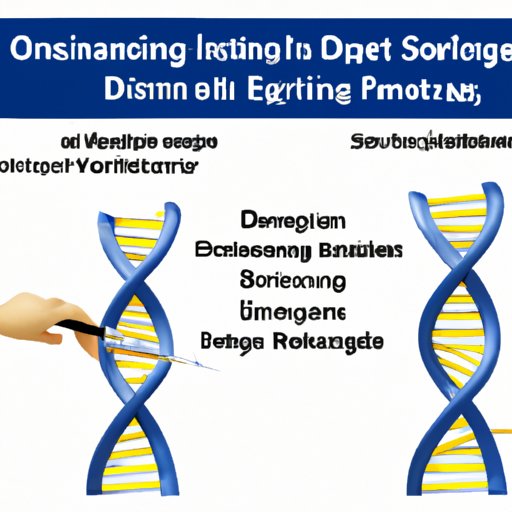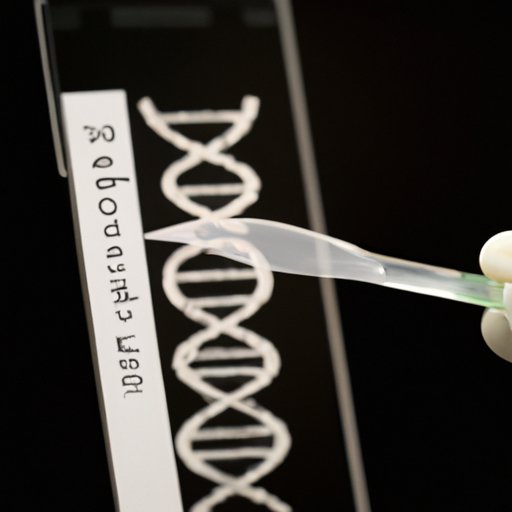Introduction
In recent years, DNA analysis has become a powerful tool that is used in criminal investigations and court proceedings. It is considered one of the most reliable forms of scientific evidence, yet it is not without its flaws. This article will explore why DNA analysis is an imperfect science and examine the limitations of DNA testing, uncertainty of evidence, and shortcomings of DNA profiling.
Examining the Limitations of DNA Analysis
Accuracy and reliability are two key components of DNA testing. While there is no question that DNA testing can provide accurate results if done correctly, there is still the potential for human error. According to a 2012 study published in the journal Forensic Science International, “the accuracy of DNA tests depends on the quality of the sample collected and the competency of the analyst conducting the test.” As such, mistakes made during collection or handling of the sample can lead to inaccurate results.
In addition to accuracy issues, there is also the issue of reliability. Even when a DNA test is conducted correctly and accurately, the results may not be reliable due to the possibility of contamination. Contamination can occur when DNA from another source is unintentionally included in the sample, leading to false results. A 2018 study published in the journal Forensic Science International found that “contamination of samples is one of the most common sources of error in DNA testing.”

Exploring the Shortcomings of DNA Profiling
DNA profiling is a form of DNA analysis that is used to identify individuals based on their unique genetic profile. While this technique can be useful in identifying suspects in criminal investigations, it is not without its shortcomings. One limitation of DNA profiling is the inadequacies of forensic DNA sampling. According to a 2019 report published by the National Institute of Justice, “forensic DNA sampling methods are limited in their ability to detect and quantify low levels of DNA.” This means that samples may not contain enough DNA to produce conclusive results, or the results may be inconclusive due to the low level of DNA present.
Another limitation of DNA profiling is the lack of standardization in the process. Different laboratories may use different procedures and protocols, which can lead to discrepancies in the results. This can make it difficult to compare results between different laboratories, as well as to replicate results. A 2020 study published in the journal PLOS ONE found that “there is a lack of standardization in the use of DNA profiling techniques across laboratories.”

Possible Solutions to Improve Accuracy of Results
To address the inaccuracies and unreliability of DNA testing, there are several possible solutions that can be implemented. First, standards and protocols should be established and enforced in order to ensure uniformity in the process. Additionally, more stringent measures should be taken to prevent contamination, such as requiring laboratory personnel to wear protective clothing and use gloves when handling samples. Finally, training and education should be provided to those who are responsible for collecting and analyzing DNA samples.
Conclusion
In conclusion, while DNA analysis has become an invaluable tool in criminal investigations and court proceedings, it is not without its flaws. Accuracy and reliability issues, as well as inadequacies in forensic DNA sampling, are just some of the reasons why DNA analysis is an imperfect science. To ensure accuracy and reliability of results, standards and protocols should be developed and enforced, contamination should be prevented, and training and education should be provided to those responsible for collecting and analyzing DNA samples. Only then can we ensure that DNA analysis is as accurate and reliable as possible.
(Note: Is this article not meeting your expectations? Do you have knowledge or insights to share? Unlock new opportunities and expand your reach by joining our authors team. Click Registration to join us and share your expertise with our readers.)
